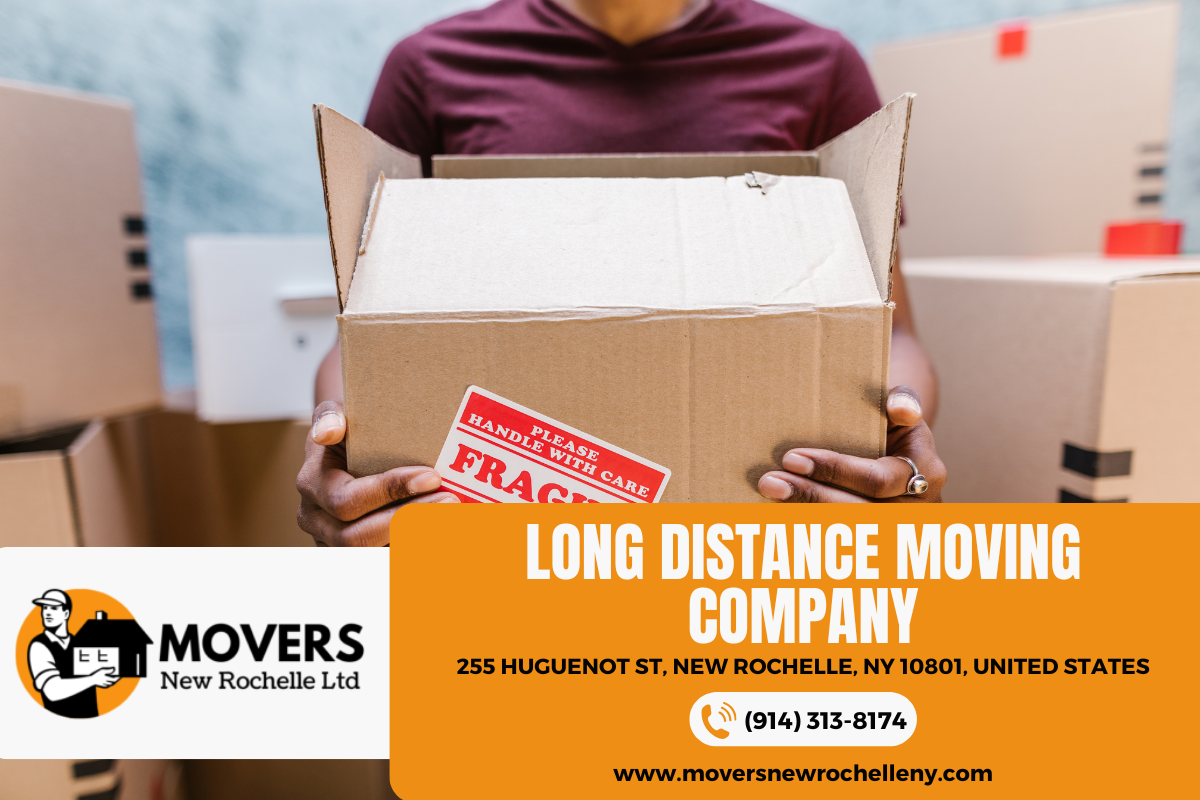


Moving to a new home can be both an exciting and overwhelming experience. Whether you are relocating for a job, family reasons, or simply to start fresh, packing your belongings for a long-distance move is a task that requires careful planning and organization. If you're in New Rochelle and seeking guidance on how to efficiently pack for your long-distance move, you're in the right place. This article will provide you with expert packing tips from New Rochelle's best long distance movers.
Understanding Long Distance Moving
Before diving into specific packing tips, it’s essential to understand what constitutes a long-distance move. Generally, long-distance moving typically refers to moves that exceed 100 miles and may involve crossing state lines. This type of relocation requires specialized services offered by long distance moving companies.
What Makes Long Distance Moving Different?
Long distance moving differs from local moves in several ways:
Distance: The sheer distance involved means you need to consider logistics differently. Timing: Long distance moves often take longer, requiring you to plan your schedule around travel time. Costs: Costs can vary significantly based on distance and the volume of items being moved.Why Choose Professional Long Distance Movers?
When considering a long-distance move, hiring experienced movers can alleviate much of the stress associated with the process. New Rochelle has a variety of reputable long distance moving companies that provide professional services tailored to meet your needs.
Packing Tips from New Rochelle’s Best Long Distance Movers
Packing is one of the most crucial aspects of any move, especially when you're undertaking a long journey across states. Here are some valuable packing tips that can help streamline your moving process:
1. Start Early
One of the most important tips from New Rochelle's best long distance movers is to start packing as early as possible. The earlier you begin, the less overwhelming the task will be.
How Much Time Should You Allocate?
Aim for at least 4-6 weeks before your moving date to start sorting and packing your belongings.
2. Gather Quality Packing Supplies
You'll need sturdy boxes, packing tape, bubble wrap, markers, and labels. Invest in high-quality materials to ensure your items remain safe during transit.
Where Can You Find Packing Materials?
Consider looking at local stores in New Rochelle or online retailers that offer bulk discounts on moving supplies.
3. Declutter Before You Pack
Before shoving everything into boxes, take some time to declutter your home. Identify items you no longer use or need and consider donating or selling them.
What Are Some Effective Decluttering Techniques?
The “Four-Box Method” is effective:
- Keep Donate Sell Trash
4. Use Proper Packing Techniques
Learn effective packing techniques like filling boxes evenly and using cushioning material for fragile items.
How Should You Pack Fragile Items?
Wrap each item individually in bubble wrap or packing paper before placing them in boxes with padding at the bottom.
5. Label Everything Clearly
Labeling boxes may seem tedious but it pays off when unpacking in your new home.
What Information Should Labels Include?
Include:
- Room destination Contents description Handling instructions (fragile/non-fragile)
6. Pack an Essentials Box
An essentials box contains all the necessities you'll need immediately upon arrival at your new location.
What Should You Include in Your Essentials Box?
Consider adding:
- Toiletries Medications Changes of clothes Important documents
Organizing Your Packing Process Efficiently
Maintaining organization while packing is key to making your move as smooth as possible.
7. Create a Packing Schedule
Break down tasks into manageable chunks by creating a detailed packing schedule leading up to your move date.
How Can You Stay on Track?
Use tools like calendars or apps designed for task management.
8. Involve Family Members
Get everyone involved in the process—this not only makes it quicker but also turns it into a family activity.
What Tasks Can Each Family Member Handle?
Assign roles based on age:
- Kids can pack their toys. Adults can handle kitchen items and furniture disassembly.
9. Use Suitcases for Heavy Items
Suitcases are ideal for heavier items such as books since they have handles and wheels for easier transport.
Why Is This Method Beneficial?
This approach saves space while leveraging existing luggage instead of wasting cardboard boxes.
Special Considerations When Packing Specific Items
Certain items require special attention during the packing process due to their size, shape, or fragility.
10. Electronics: Pack with Care
Electronics are sensitive items that need careful handling while packing for long distances.
What Are Some Best Practices for Packing Electronics?
Use original packaging if available; otherwise:
Wrap each item carefully. Remove cords and label them. Store them upright if possible during transit.11. Furniture: Disassemble Where Possible
Large furniture pieces should be disassembled whenever feasible to save space and prevent damage during transport.
How Can You Safely Disassemble Furniture?
Keep screws and small parts organized by using plastic bags labeled with their corresponding furniture piece name.
12. Clothing: Utilize Wardrobe Boxes
Wardrobe boxes allow you to hang clothes directly without folding them—ideal for formal wear or delicate fabrics prone to wrinkling.
What Else Can Be Included?
You can also store shoes and accessories within these boxes!
The Importance of Communication with Your Moving Company
Staying in touch with your chosen long distance moving company enhances coordination throughout the process:
13.. Provide Accurate Inventory
Supply an accurate inventory list of all packed items ahead of time so movers know what they’re handling—this minimizes confusion later on!
Why Is This Step Crucial?
An accurate list ensures nothing gets lost during transit!
FAQs about Long Distance Moving
Here are some frequently asked questions regarding long distance moves:
Q1: What are common costs associated with hiring long distance movers?
A1: Common costs include transportation fees based on mileage traveled, labor charges per hour/day spent loading/unloading goods & additional service charges such as storage if needed temporarily between homes!
Q2: How do I choose between different moving companies in New Rochelle?
A2: Look out for reviews online! Ask around among friends/family who have experience using local services; check licenses/certifications too!
Q3: Can I pack my own belongings when hiring professional movers ?
A3: Yes! While many companies offer full-service options (packing), most allow you flexibility if desired so make sure clarify beforehand which route suits best!
Q4 : What happens if my belongings get damaged during transit ?
A4 : Reputable businesses usually provide insurance coverage protecting against losses/damages incurred while shipping - always ask about policies before committing contracts though!
Q5 : Should I tip my movers after completing job ?
A5 : Tipping is customary within industry standards; generally considered good practice showing appreciation – anywhere from $20-$50 per mover depending complexity/type job done successfully!
Q6 : How do I find reliable reviews regarding local moving services ?
A6 : Websites like https://canvas.instructure.com/eportfolios/3365277/erickmsuq942/what-to-expect-when-working-with-long-distance-moving-companies Yelp/Google Reviews could assist greatly; additionally searching social media platforms often yields personal recommendations too!
Conclusion
Packing up all your belongings for a cross-country journey doesn’t have to be an overwhelming task if approached systematically! With insights shared here by New Rochelle’s best long distance movers along with thoughtful attention paid toward organization/methodical execution - anyone should feel well-prepared navigating upcoming transitions seamlessly ahead! So grab those boxes (and maybe enlist some help) because exciting adventures await just beyond horizon! Safe travels!